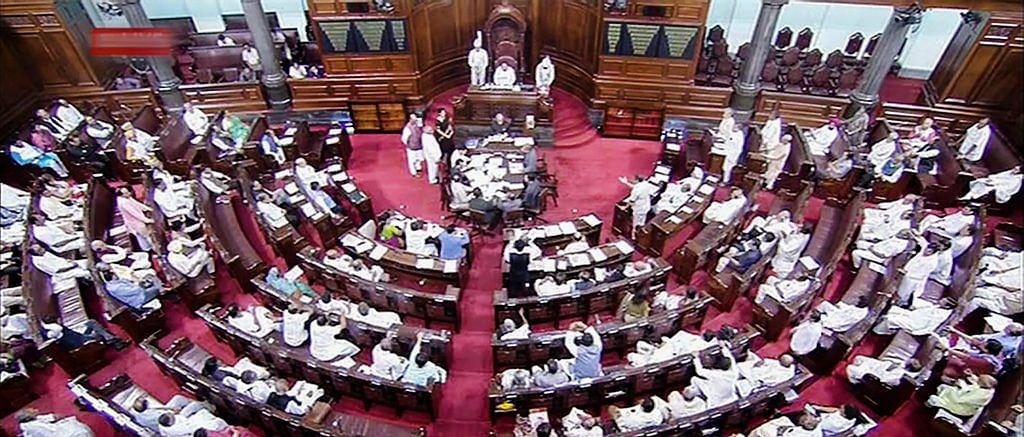There are 244 members in the Rajya Sabha currently, which means the winning candidate needs 123 votes; the NDA count adds up to 125.
New Delhi: Numbers favour the government in Thursday’s election to pick the Rajya Sabha deputy chairman despite the Congress-led opposition efforts to rally support for their candidate.
After several brainstorming sessions, the opposition agreed on Congress MP B.K. Hari Prasad as their nominee for the post, while the government has fielded Janata Dal (United) MP Harivansh Narayan Singh.
The opposition strategy rested on the Navin Patnaik-led Biju Janata Dal (BJD) and K. Chandrashekar Rao’s Telangana Rashtra Samithi (TRS). However, both have announced their support to Harivansh, deflating the opposition’s bid.
There are 244 members in the Rajya Sabha currently, which means the winning candidate needs to ensure 123 votes.
In the government camp, the BJP has 73 MPs, with the support of 13 MPs of the All India Anna Dravida Munnetra Kazhagam (AIADMK), six of the JD(U), three each of the Shiv Sena and the Shiromani Akali Dal (SAD), and five others. This adds up to 103. The government side also has the support of three nominated members, Swapan Dasgupta, Mary Kom and Narendra Jadhav. Add to this the BJD’s nine MPs and the TRS’ six, and the number goes up to 121. Four independents, Amar Singh, Ajay Sancheti, Subhash Chandra and Sanjay Dattatreya, support the government side too.
Also read: Rajya Sabha deputy chairman election: Has BJP upset its oldest ally SAD or is it appeasing JD(U)?
In the opposition, the Congress has 50 MPs, while the Trinamool Congress (TMC) and the Samajwadi Party (SP) have 13 each; the Rashtriya Janata Dal (RJD) and the Communist Party of India-Marxist (CPI-M) five each; the Bahujan Samaj Party (BSP), the Nationalist Congress Party (NCP) and the Dravida Munnetra Kazhagam (DMK) four each; the Telugu Desam Party (six); and the YSR Congress and the CPI two each. With six others, the number adds up to 114.
However, Congress MP Subbarami Reddy is out of the country and unlikely to vote, while the DMK’s Kanimozhi, whose father, five-time Tamil Nadu chief minister M. Karunanidhi, died earlier this week, will be in Chennai.
Meanwhile, the Aam Aadmi Party (three MPs) and the Peoples Democratic Party (two) have decided to abstain from voting, with the former faulting the Congress “for not reaching out” to them for the election.
Also read: NDA faces uphill task in Rajya Sabha deputy chairman elections
In this scenario, the effective strength of the house stands to come down to 237, which means the winning candidate would need just 119 votes, which means an even smoother victory for the government candidate.
